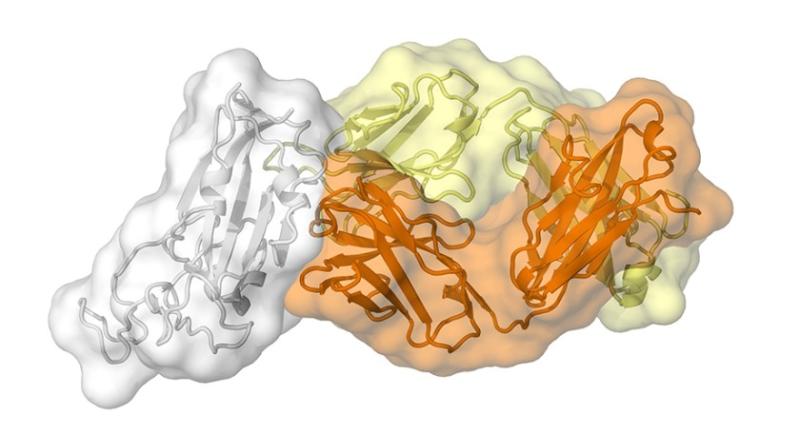Scripps Research finds 'possible Achilles heel' in the coronavirus - The San Diego Union-Tribune
Category: Entirely New
Via: tig • 6 years ago • 0 commentsBy: Gary Robbins April (San Diego Union-Tribune)



An antibody called CR3022, produced by a patient in response to the coronavirus that causes SARS, also binds to the new coronavirus that causes COVID-19. This suggests that there's a specific region of the virus to target with drugs. (Courtesy of Meng Yuan and Nicholas Wu of the Wilson lab)
The discovery could help target a weak spot in the virus with strong drugs
By Gary Robbins April 3, 2020 2:16 PM Facebook Twitter Show more sharing options Share Close extra sharing options Facebook Twitter LinkedIn Email Copy Link URLCopied! Print
Scripps Research in La Jolla reported on Friday that there appears to be a specific area of the coronavirus that could be targeted with drugs and other therapies, a finding that also could help with the development of a vaccine.
Scripps scientists say the spot is crucial to spreading the highly contagious virus, and that its composition suggests that it would be vulnerable to drugs.
This coverage of the coronavirus pandemic is part of your subscription to The San Diego Union-Tribune. We also provide free coverage as a service to our community.
The spot 'is a possible Achilles heel' in the coronavirus, said biologist Ian Wilson, who led the team that made the finding. The discovery was published Friday in the journal Science.
Advertisement
The advance arose from a huge and growing effort by scientists globally to find human antibodies that can neutralize or destroy the coronavirus.
Wilson examined an antibody that had been taken from a SARS patient years ago and noticed that it latched onto a specific place in that virus.
The team then discovered that the same SARS antibody latched onto virtually the same spot on the coronavirus. The antibody did not grip it quite as hard, but it helped identify the spot as a possible weak point in the makeup of the virus.
'That high degree of similarity implies that the site has an important function that would be lost if it mutated significantly,' Scripps Research said in a statement Friday.
Advertisement
The researchers need to explore the matter further, which won't be easy.
'We found that this (spot) is usually hidden inside the virus, and only exposed when that part of the virus changes its structure, as it would in natural infection,' Wilson's colleague, Meng Yuan, said in a statement.
Scripps Research also will search for antibodies that do a better job of latching onto the vulnerable region of the virus.
The institute is seeking the public's help. Researchers are looking for COVID-19 survivors who would be willing to donate some of their blood, which would then be screened for potentially useful antibodies.
All humans have five basic types on antibodies. But there's lots of variability among those groups. Scientists are looking for the ones that are best suited to identify and neutralize the virus.
People who wish to participate should contact Scripps Research directly at covid-19survivorstudy@scripps.edu
The institute says that it is particularly interested in talking to people who have been symptom-free for two to three weeks. The antibodies that people produce to fight the virus can become stronger over time, scientists say.
ICYMI
Advertisement
Renowned San Diego virus fighter Erica Ollmann Saphire to lead international effort to stanch the spread of coronavirus
Public warned not to mistake a type of chloroquine used to clean fish tanks as a treatment for coronavirus. It can be deadly
